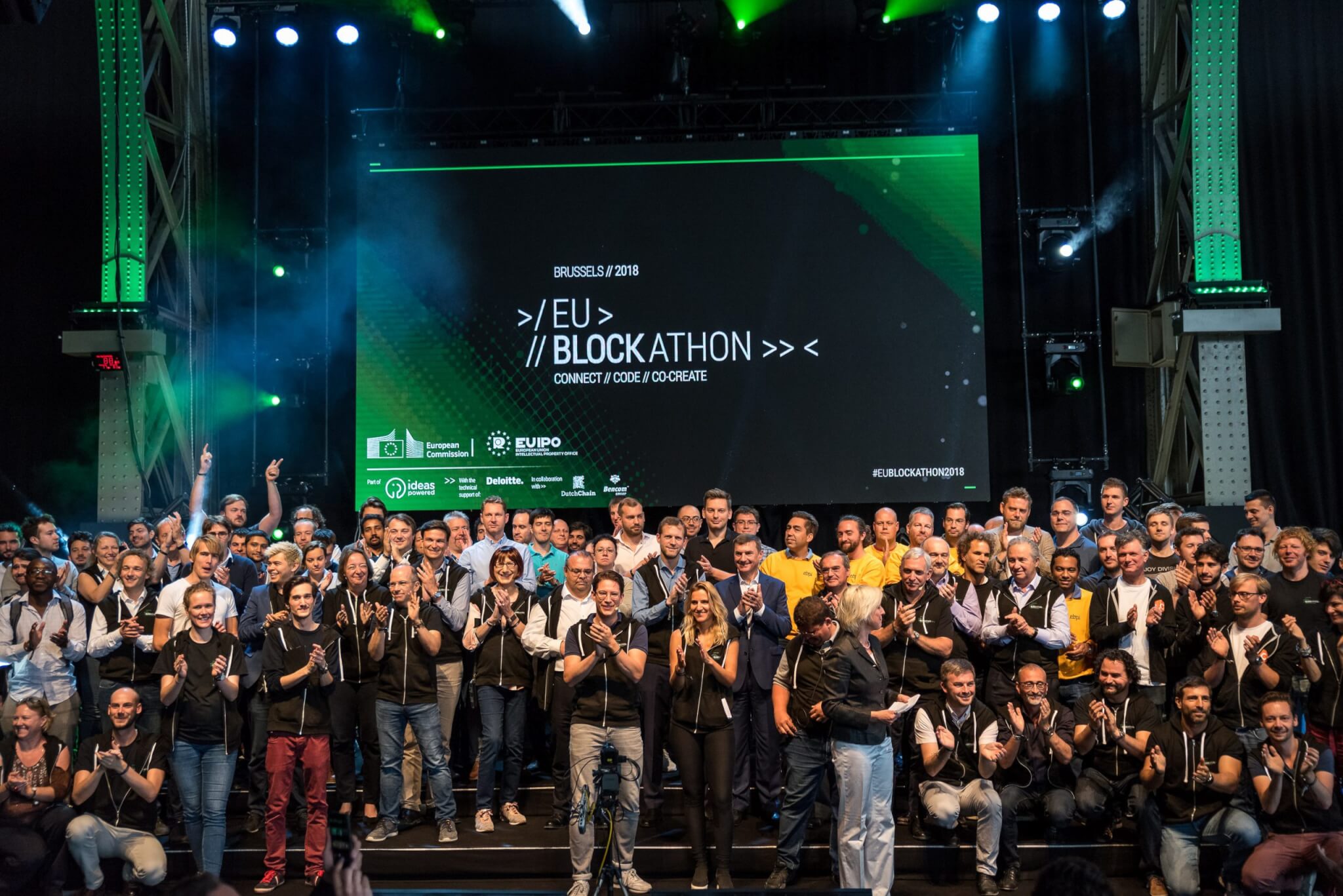
The winners of the inaugural EU Blockathon 2018 competition, which took place between June 22 and 25, were announced at a ceremony in Brussels on Monday. Organized by the European Union Intellectual Property Office (EUIPO) and the European Commission (EU), the EU Blockathon 2018 sought to build the next level anti-counterfeiting infrastructure for the European Union (EU) powered by blockchain technology.
The overall winners were Team Cryptomice, captained by Thomas Rossi, from Italy, which scooped the overall EU Blockathon 2018 winning prize. In second place was Team Fides, captained by Tobias Kars, from Switzerland.
Team Cryptomice built a blockchain agnostic solution aimed at making the validation of the authenticity of a product as easy as possible.
By creating a “virtual twin” product which cannot be cloned or falsified, and which is linked to the physical product and registered on the blockchain, stakeholders in the supply chain can verify the digital transfer of the virtual twin. The absence of a virtual twin which would normally be sent ahead digitally through the supply chain, would raise a red flag which could be transmitted to logistics operators, customs and consumers. Only the virtual twin together with the physical product confirm the authenticity of the product.
As a next step, the team said it will be looking for feedback from brand owners and a pilot with some of them.
Team Fides developed a “Goodchain” solution to help consumers engage with brand owners for social causes while helping them identify counterfeit products.
Every product is identified with a unique secure QR code, applied at the level of manufacture. When applying the QR code to a product, the brand makes a pledge for a certain number of “impact points” in relation to a social cause. Along the supply chain, certification bodies will check that the authentic product is moving through the chain and confirm this with a certificate which will allow customs to fast-track the goods through the system.
When scanning the purchased product, the consumer can scan the code and donate the impact point to the social cause, which will be honored by the brand transferring an agreed monetary value to the cause. If a consumer cannot redeem their impact points, this means that the product is a fake and this fact is fed back to the brand.
During the hackathon, Team Fides was already in discussions with other groups as regards to a potential cooperation. Moving forward, the team said it will be looking to creating a consortium of stakeholders and, in particular, working with a brand on a pilot project.
The EUIPO said that work will now begin between winning teams and public and private stakeholders to see how the solutions created can be further developed to contribute to the fight against counterfeiting.
Other solutions developed during the EU Blockathon 2018 include “Trusttrack,” which supports customs in identifying efficiencies with the aim of attaining a higher success rate in stopping fakes, and the “Self Sovereign Digital Twins” solution where each product is embedded with a dynamic NFC chip that cannot be duplicated and which is stored on the blockchain.
António Campinos, the executive director of the EUIPO, said:
“The EU Blockathon springs from the idea that blockchain technologies have great potential in the fight against intellectual property rights infringement.
“The solutions developed here by these bright groups of coders will, hopefully, have a part to play in that fight, as we work to try to stop counterfeiting both online and offline.”
The two finalists were chosen out of the 11 participating teams which worked for 48 hours to co-create a series of anti-counterfeiting blockchain solutions for consumers, enforcement authorities, logistic operators and businesses.
According to the EUOPO, about EUR 60 billion and 434,000 jobs are lost each year due to counterfeiting in 13 key economic sectors.
In 2017, over 35% of EU consumers, or around 150 million in total, wondered whether a product purchased was real or fake. That same year, 10% of EU consumers, or around 43 million citizens, were tricked into buying a fake product instead of a genuine one.

